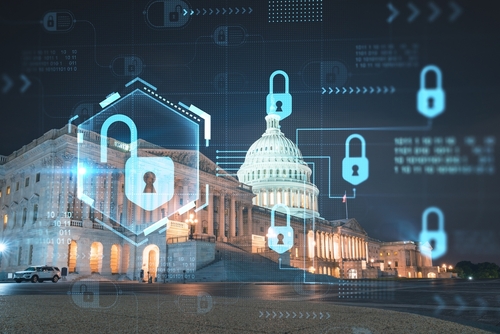
An effort to increase cybersecurity protections for commercial satellites gained traction in the Senate this week, as the Satellite Cybersecurity Act (S.1425) advanced out of the Homeland Security and Governmental Affairs Committee to the full Senate.
The bill was introduced by U.S. Sens. Gary Peters (D-MI) and John Cornyn (R-TX). Peters is the chair of the Homeland Security and Governmental Affairs Committee.
“Cybercriminals will stop at nothing to disrupt American lives and livelihoods, and an attack on commercial satellites could have devastating implications. That’s why we must ensure companies that operate commercial satellites have the proper resources to prevent disruptive cyber-attacks,” Peters said. “My bipartisan bill will help ensure that commercial satellite owners and operators have the necessary tools and resources to protect their networks.”
If passed, the bill would require the Cybersecurity and Infrastructure Security Agency (CISA) to consolidate voluntary satellite cybersecurity recommendations to help companies approach securing their systems, with a particular interest in helping small businesses. To this same end, the agency would have to create and maintain a publicly available, online resource of satellite-specific cybersecurity options and recommendations. Moving beyond CISA, the Government Accountability Office (GAO) would also be tapped to study how the federal government supports commercial satellite industry cybersecurity to chart vulnerabilities, and require the National Cyber Director and National Space COuncil to create a strategy of coordination on the issue.
“Satellite networks play an important role in our national security, and it’s imperative they’re protected from cyber threats and bad actors,” Cornyn said. “This bill would equip satellite owners and operators with the tools to secure their systems against disruption, and I urge the Senate to pass it soon.”
Echoing similar concerns as those raised in support of this bill, the Department of Defense (DoD) has, in the past, signaled concern over the economic and security consequences successful hacks of commercial satellites could induce. The danger only grows as these satellites become more pervasive – and engrained – in commercial workings, from electric grids, to water networks, transportation systems and more.




